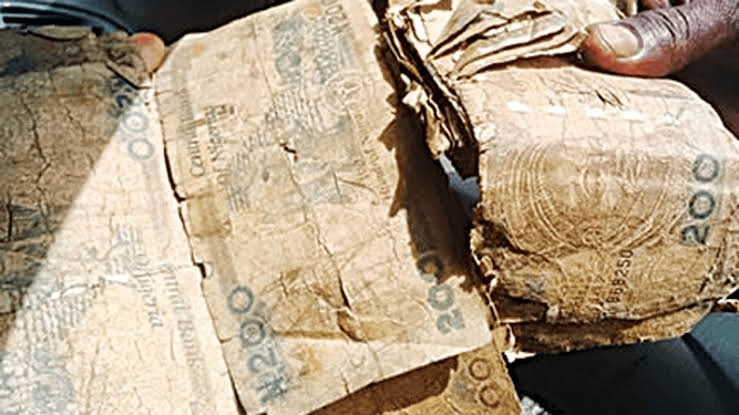LARGE proportion of the N7.9 trillion pieces of naira notes in circulation are dirty, mutilated, unfit for Automated Teller Machines (ATMs) and over-the-counter payments, the Central Bank of Nigeria (CBN) has said.
A statement by CBN’s Deputy Governor, Operations Folashodun Shonubi and Director, Currency Operations Department Mrs. Pricilla Eleje spoke of plans to withdraw such notes from circulation.
The officials said the bank had the obligation of providing adequate supply of clean banknotes to facilitate seamless payment and settlement of transactions by the public, government and banks.
CBN Governor Godwin Emefiele is “due in Lagos tomorrow to launch “The clean note policy and banknote fitness guidelines”.
The CBN described the measure as the first step in its bid to address the sorry state of the notes in circulation and create a new culture for better handling of the currency.
The clean note policy provides a uniform standard for the circulation of only clean and fit banknotes; while the banknote fitness guidelines provide the industry with clear and acceptable criteria for determining the quality of notes in circulation.
The policy guidelines, the regulator said, were developed after extensive collaboration and engagements with key industry stakeholders under the auspices of the Nigerian Cash Management Scheme, a Bankers’ Committee initiative.
The plan will ensure that unfit, dirty, mutilated and counterfeit banknotes are not in circulation. This is pursuant to Sections 18, 20 & 21 of the CBN Act 2007 which prohibits the counterfeiting, sale and abuse of the naira.
The statement said: “The CBN cannot achieve these objectives without the collaboration of deposit money banks(DMBs), merchant banks, microfinance banks, government agencies, Cash-in- Transit ( CIT), Cash Processing Companies (CPCs), Market Associations, merchants/retailers, chambers of commerce and industry, security agencies, currency Management equipment manufacturers , bank customers and the general public.”
It explained that over the years, the growth in economic activities and the upsurge in population had necessitated the rise in the volume of banknotes in circulation.
The CBN said: “In view of technological advances, the CBN, like other central banks has introduced various forms of electronic payment systems for effective and efficient settlement of transactions and to reduce the volume of cash usage with its attendant cost implications.
“Despite the prevalence of other forms of payment, cash remains ‘king’ in our day to day economic transactions. As such, people still prefer to use cash in making payments especially where there are no digital payment platforms.


